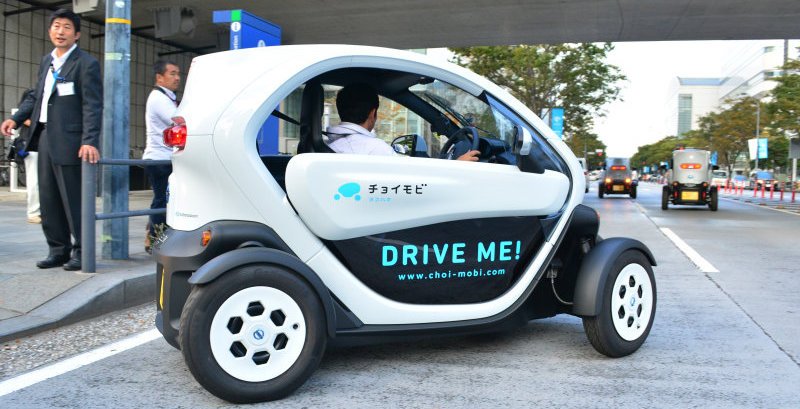Japanese car-sharing service members are renting cars — but not for driving

Remember when Bubble Wrap was sold as wallpaper and Play-Doh was sold as wallpaper cleaner? No one else does, either, but those were the original purposes those two inventions were created to serve. According to a report in the Asahi Shimbun newspaper, car-sharing companies in Japan are also finding out that customers will gladly put products to unforeseen uses. When Times24, Japan's largest car-sharing service, surveyed its customers about how they use the vehicles, respondents provided answers that included as a place to nap, as office space, and as a storage place when there was nowhere else nearby to put belongings. Beyond that, it seems another lasting effect of the earthquake and tsunami that struck Japan in 2011 is a lack of public charging infrastructure; the survey showed people were renting vehicles to charge their phones.
Other surveys by other car-sharing services have not only revealed an even wider range of applications, but that such accessory uses are on the rise, albeit slowly. A questionnaire by service owner NTT Docomo found more than 12 percent of users didn't drive. An "overwhelmingly large number" rented cars to have conversations with friends, family and business clients. Smaller numbers said they watched television, used cars as changing rooms to don Halloween costumes, practiced their singing or rapping, and did "facial stretches to reduce the size of their face." And some just got in a car to stay cool in summer or warm in winter.
A PR spokesperson at Orix, another service, said, "[We] do not recommend our customers rent vehicles for purposes other than traveling in." In addition to the morass of potential issues that could arise from people using cars as living spaces, the services make less money when cars don't rack up miles.
Admittedly, Tokyo is an outlier, with its exorbitant rents and extreme population density. Yet this is why car-sharing vehicles have turned into personal habitats, since they provide ubiquitous, affordable, semi-public spaces available 24 hours a day. Renting a car for 30 minutes costs less than $4. But these tales can certainly be taken as cautionary considerations as to how users in other cities will employ spaces they subscribe to and feel ownership of.
Related News


